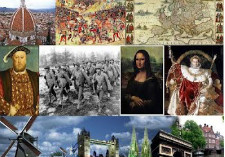 AP European History
AP European History
This course is taught at the college level. Students are frequently required to analyze, synthesize and evaluate primary and secondary historical sources, in addition to comprehending, memorizing and applying facts. The study of European history since 1450 introduces students to cultural, economic, political, and social developments that played a fundamental role in shaping the world in which they live. This course challenges students to read critically, weigh evidence and interpret problems presented by historians. Through assessment and critical analysis of historical documents and interpretations of them, students learn to analyze data, form conclusions, and present well-reasoned, persuasive arguments in written form. Without this knowledge, we would lack the context for understanding the development of contemporary institutions, the role of continuity and change in present-day society and politics, and the evolution of current forms of artistic expression and intellectual discourse.
The Course Objectives:
- Reason historically about continuity and change over time and make comparisons among various historical developments in different times and places.
- Recognize point of view, bias and propaganda, and describe their importance in the unfolding of events in European history.
- Acquire an appreciation for history, Europe’s unique role in modern world history, and the importance of individual and societal choice and action.
- Participate in critical thinking and formulate higher thinking skills through class discussion.
- Write analytic and interpretive essays within a limited timeframe.
- Learn to see history through a Christian perspective.
- Successful completion of the AP European exam.
